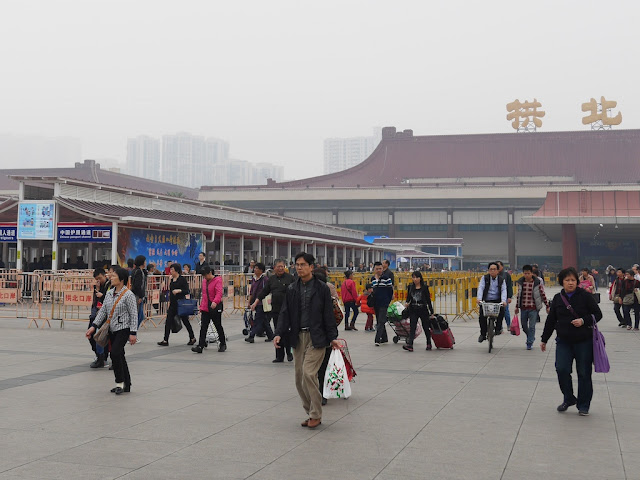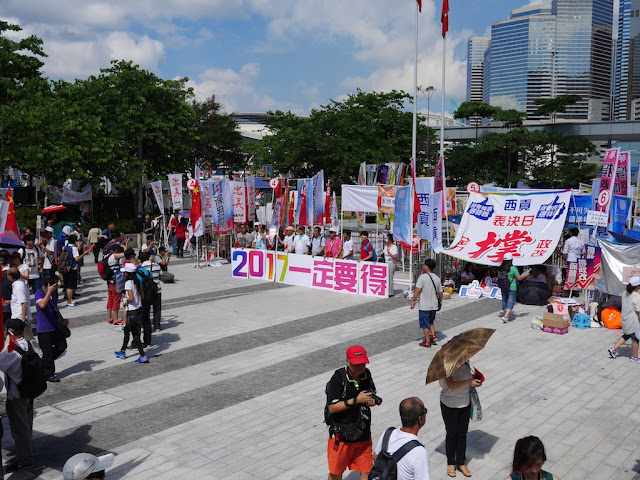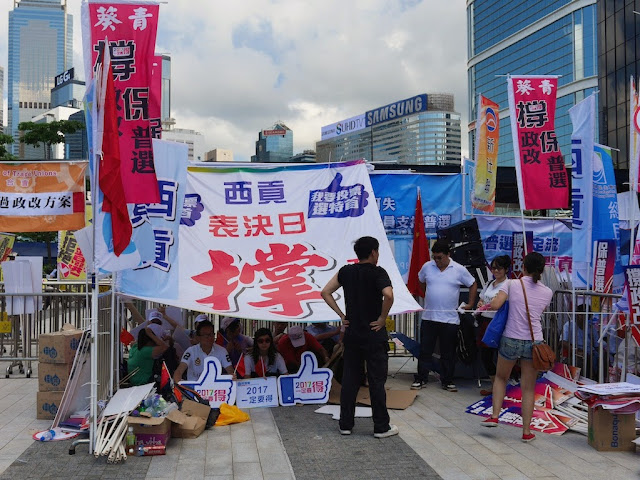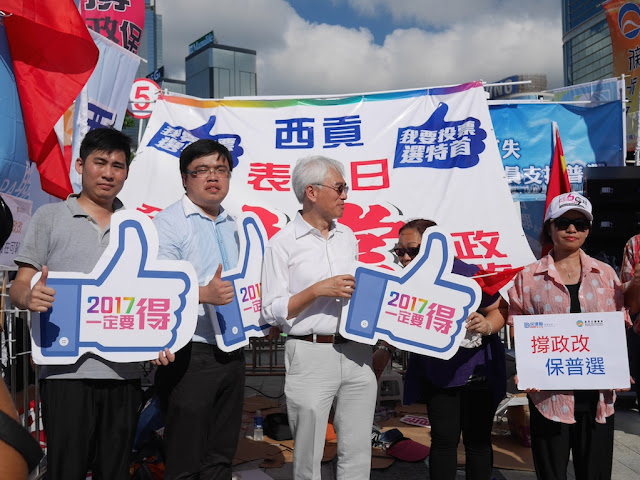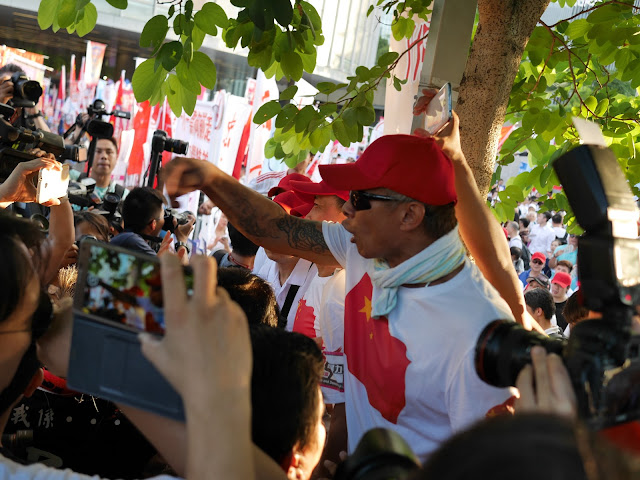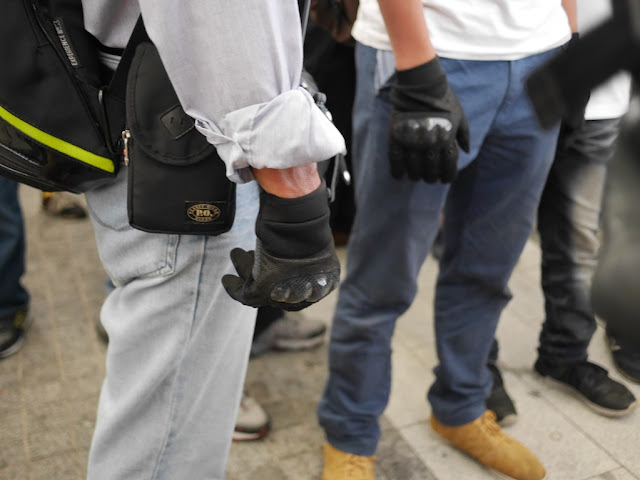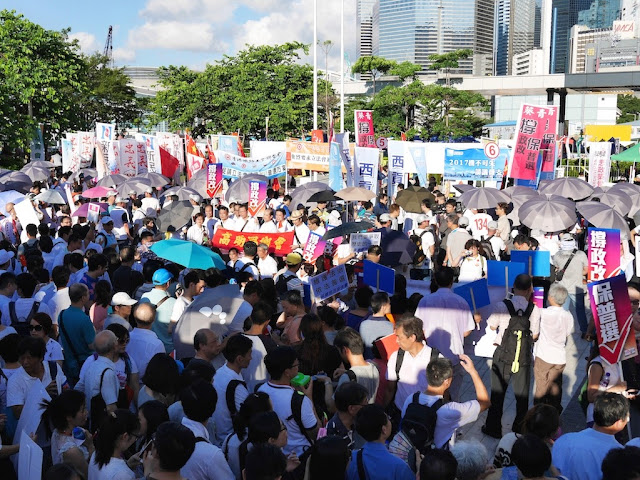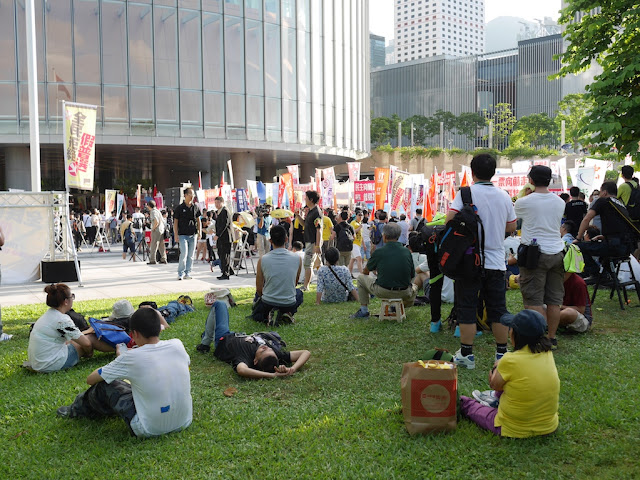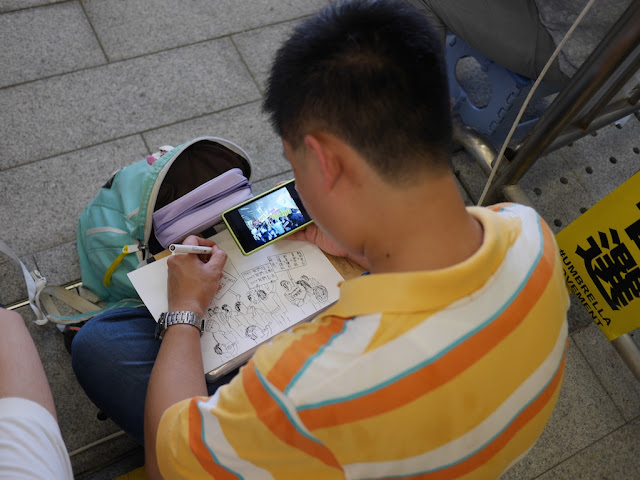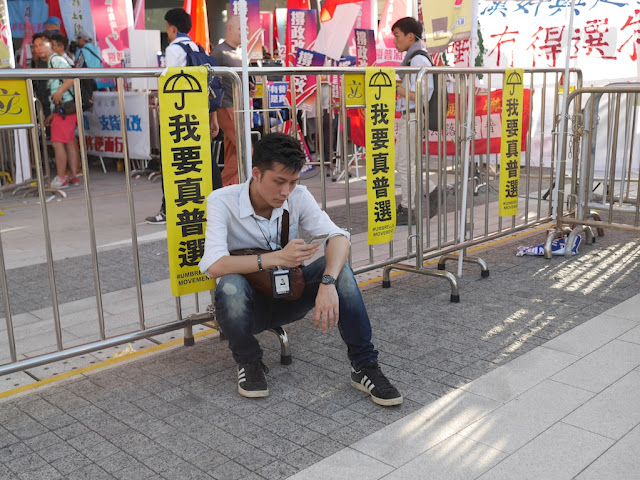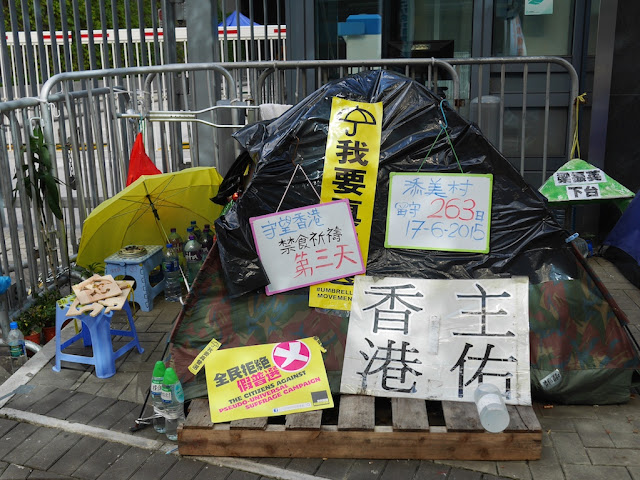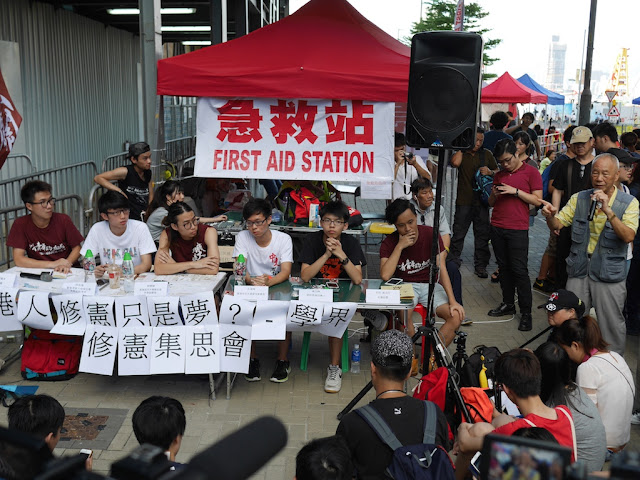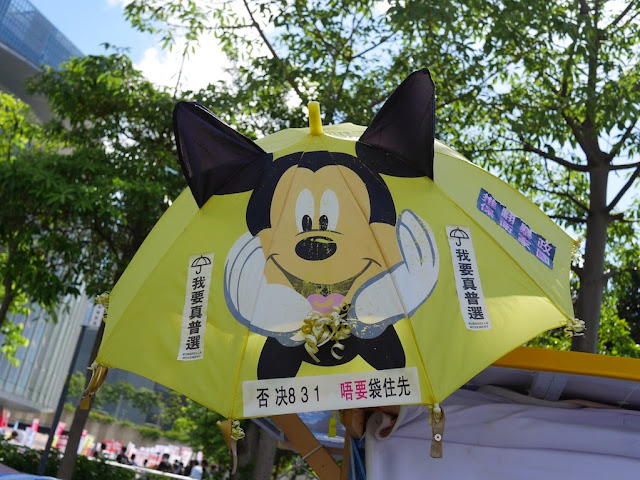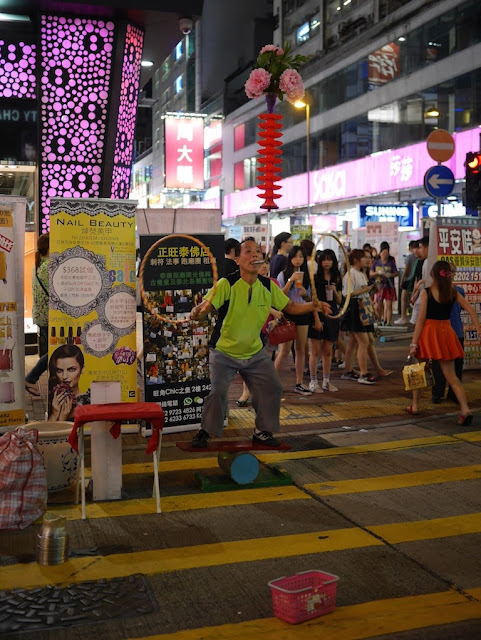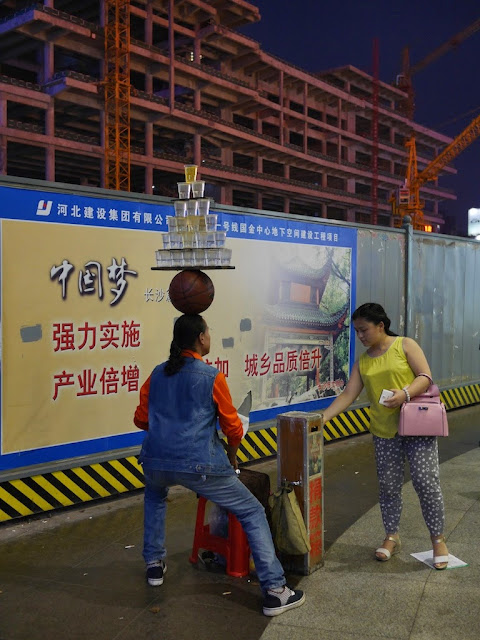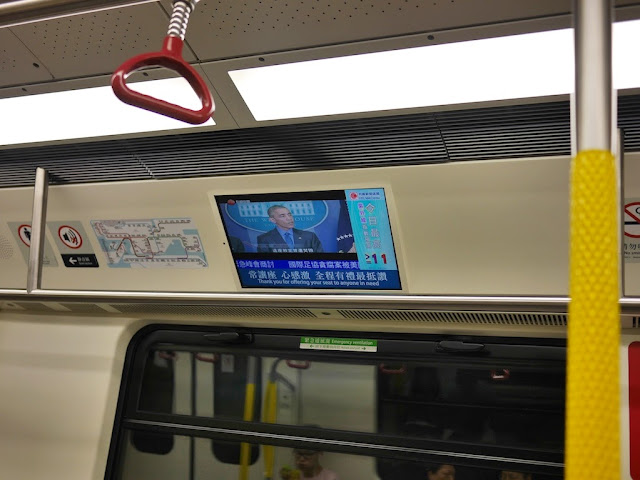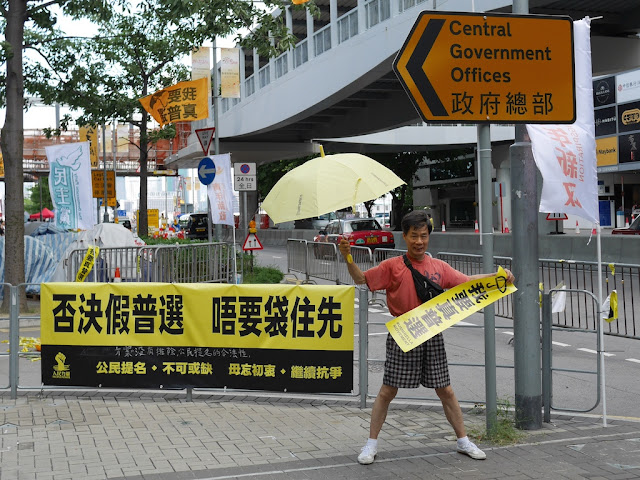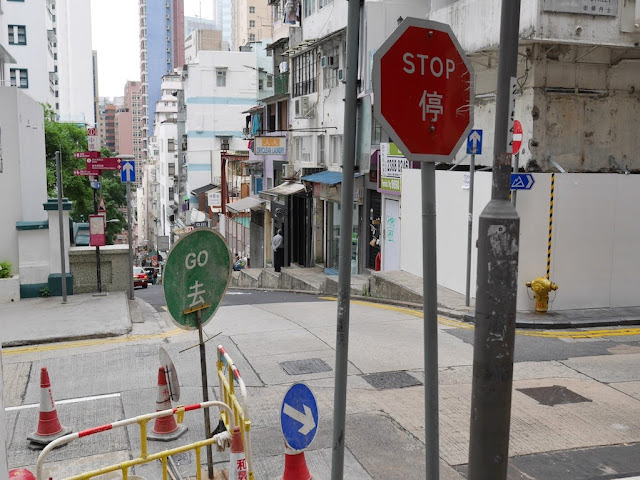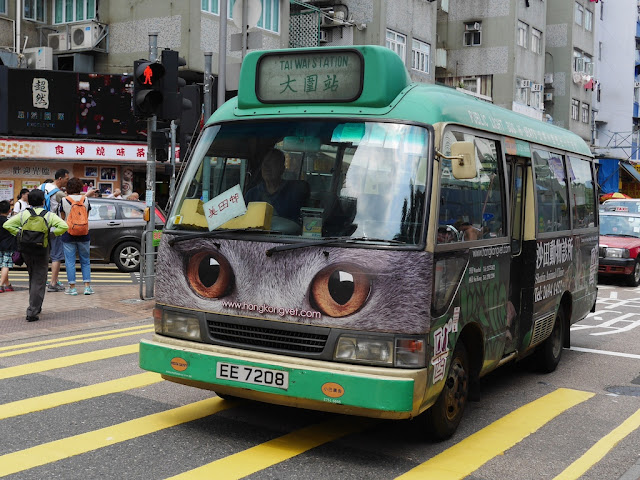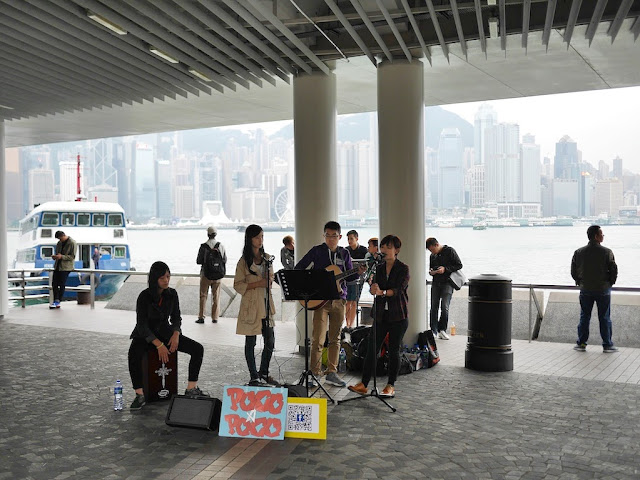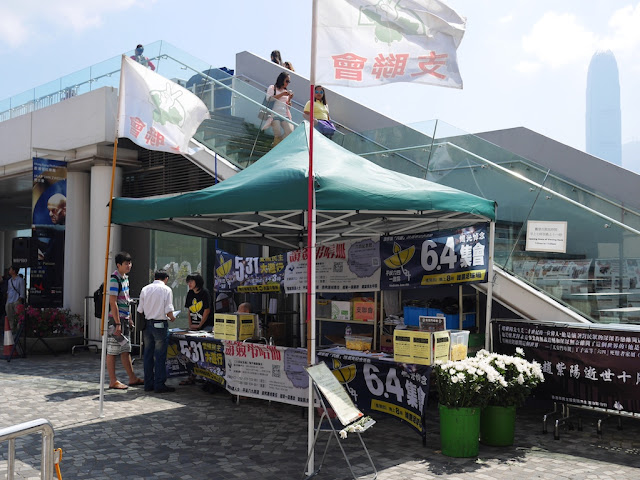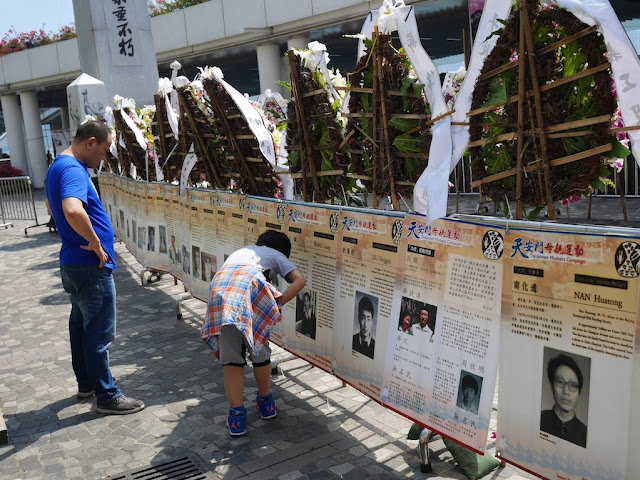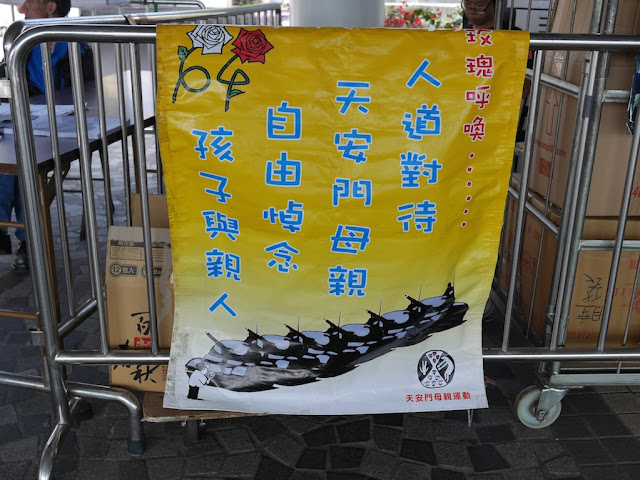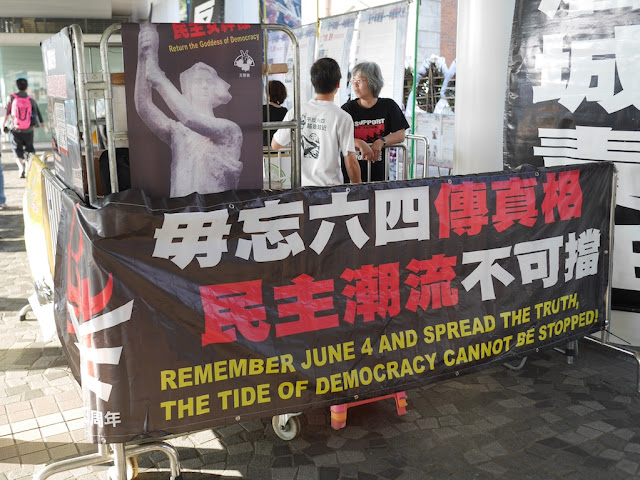On Wednesday afternoon last week I observed demonstrations regarding a Beijing-backed election plan. The next day
legislators voted down the plan. Below are some of the photos I took at the demonstrations. They aren't intended to provide a complete overview of what I saw, and I will refrain from going into great detail of what or who the photos capture. I share them simply in the spirit of adding a bit of color and perspective to what has already been reported elsewhere.
The main demonstration area was split into two sides.
On the pro-government side:
At times during the hot afternoon, not many people were in the main area.
Even some speakers couldn't attract a large crowd.
Nonetheless, there were plenty of signs ready for people to carry.
It was hard to estimate the number of people at the time, because it appeared some supporters were outside the main area seeking shade. Some found ways to escape the sun in the main area though.
Others made use of umbrellas, with the notable absence of any
colored yellow.
And there was also a covered portion of the demonstration area which was sometimes crowded during the afternoon. Different organizations representing nearby cities or regions often rotated in and out of the area. The first I noticed represented Guangxi.
Another of the groups I saw represented Shanwei, a city not far from Hong Kong.
One opponent of the plan claimed it was common knowledge that many of these groups were comprised of mainland-Chinese tourists who have either been paid or given special deals on their travel to Hong Kong for their participation. Others claimed that even some of those who lived in Hong Kong had been paid to attend.
But whatever people's motives for attending, various opportunities arose to pose for photos.
Two rows of railings with a space in between separated the pro-government supporters from those who opposed the Beijing-backed plan. Some people from both sides often gathered at the railings to taunt each other. Earsplitting loudspeakers were a favorite tool.
At times, some pro-government supporters found ways to get closer to the other side and tempers flared. I didn't witness any violence, though the yelling could be rather intense.
Elsewhere, one group of men stood in a row while wearing hard-knuckle gloves. When I inquired I was told, "Don't worry. They're just for protection."
As the sun lowered and the work day began to end, the crowds noticeably thickened in the main demonstration area.
On the side demonstrating against the Beijing-backed proposal:
I didn't see any curious gloves and fewer loudspeakers were in use. But one woman did her best to incite the other side by sticking out her tongue for long periods of time.
There seemed to be fewer people on average during the afternoon. Some relaxed on a grassy area.
Some wore shirts with messages.
Some drew.
And it was not hard to spot people working for the news media.
Near the main demonstration area tents had been set up by various organizations and people.
Typically, the tents were covered with at least a few messages.
And there was even a "Buddhist Court".
One of the activities I saw in this area was attended by Joshua Wong (sitting and wearing a black and red shirt), a student leader who has become a public face for the pro-democracy protests.
Numerous posters and art were displayed.
And some of the expression had a lighter side to it.
As with the other side, the crowds significantly increased as the sun lowered and people were able to leave work. In several areas people could watch the speeches now being given by legislators. Before I left, flags were waving on both sides. Most notable was the old British Colony of Hong Kong flag.
When I finally left the demonstrations not long before 8pm, I saw one group setting up yet another tent.
That is all.


